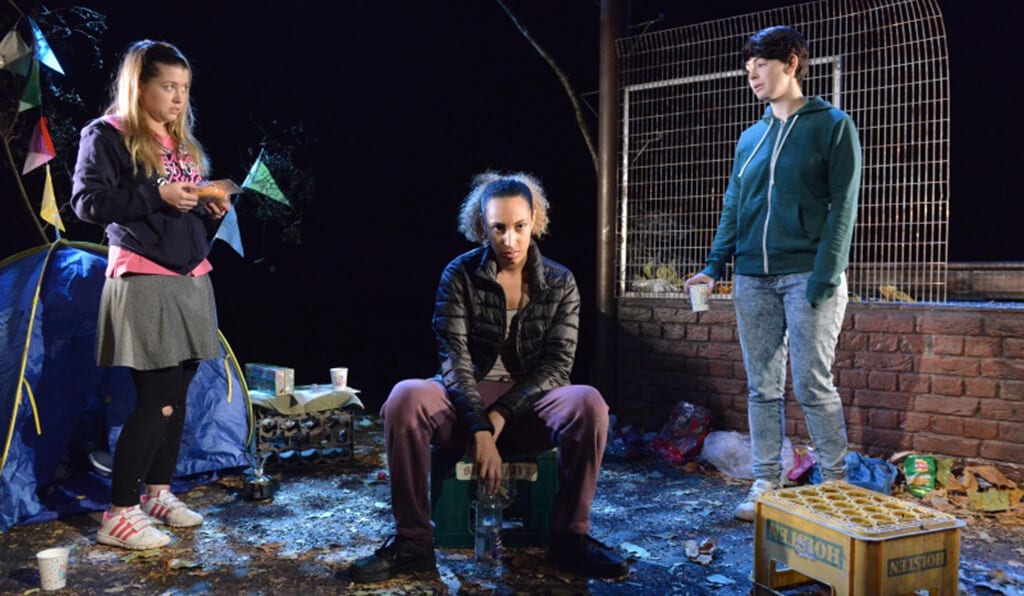In 2014, playwright Jane Upton read about an 18 year old girl who was grooming other girls to be a part of a sex ring run by older men. It was this event, and the reactions to it, which prompted her to write All the Little Lights for Fifth Word.
Joanne tries to lure her old best friend Lisa back into the friendship with a birthday party held in her campsite home. Sitting next to a busy rail track, the young girl Amy also visits and exchanges sexual favours for chips to please her older friend: the potential descent is visible to Lisa, ruining any chances of reconciliation with the haunts of the past which are clearly too raw to even be considered memories.
Upton chooses deliberately for this to be the three female voices: they live in a world dominated by sexually manipulative men, their favourite memories being of watching Frozen and getting Nandos. Lisa struggles to process her new life in a foster home, kissing her foster carer when she is unsure of what to do in moments of emotional intimacy.
It is clear the extent to which these girls have suffered, and frightening that we can see the 12 year old Amy being led down the same path, but are powerless to stop it. The relationship between Tessie Orange-Turner’s Joanne and Sarah Hoare is tender with one another, how their past traumas bring them together but ultimately mean that they can never be together again. The role of Amy, though important in the story, often feels more distinctly separated from it, and isn’t performed with the same tender insight by Ester-Grace Button, often focusing on achieving laughs, particularly early on.
Max Dorey’s set places us exactly in the world of these girls, the simple pleasures and the sparseness of daily life for them. Whilst the sound of cars honking nearby haunts Max Pappenheim’s sound design, the inconsistent use of realistic soundscapes juxtaposed with that of white noise detracts from some of the plays emotional qualities.
Not everything works in this production, and quite often the clarity of narrative drops. Nevertheless, it is a vitally important story which is hard to tell at the best of times. A more convincing vision would turn this really personal play into the devastatingly poignant production that it could be.

